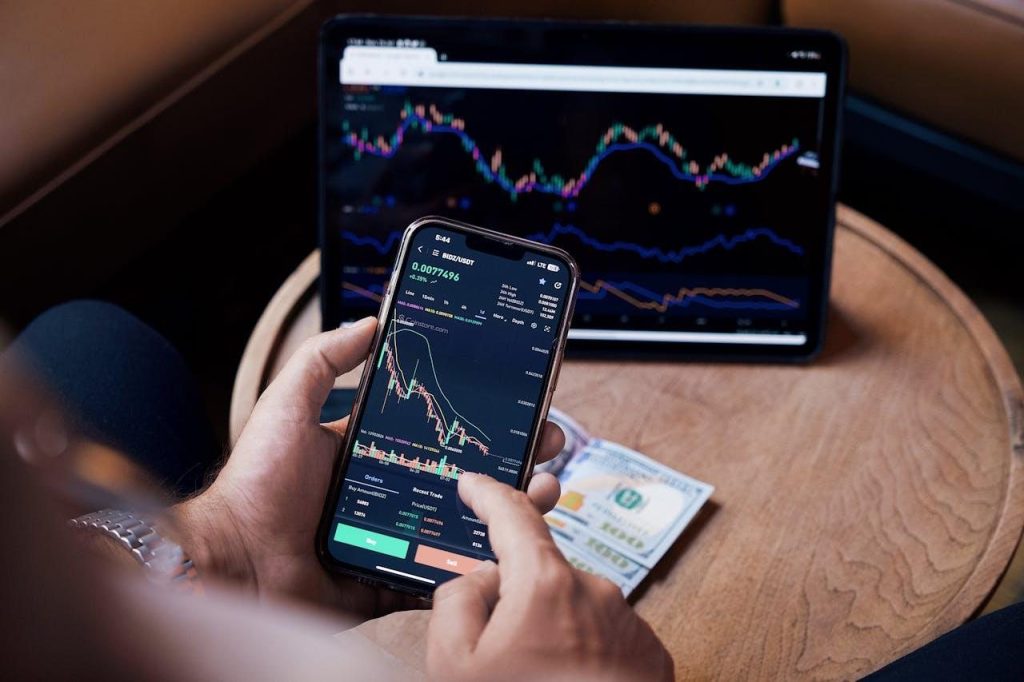Nowadays, entering the world of trading is more accessible than ever before. However, for beginners, choosing the right trading platform is crucial for simplifying the learning process and fostering successful investments.
With a multitude of robust trading platforms available, selecting the appropriate one can significantly influence a beginner’s investment experience and outcomes.
In this blog post, we aim to demystify the process, helping you make an informed decision that aligns with your financial goals and trading style.
Understanding Your Trading Needs
In order to set a solid ground to walk on from novices to more advanced traders and find the best trading platform for beginners, you need to understand your trading needs first.
Define Your Investment Goals
The first step in selecting the trading platform is understanding your investment goals. Are you looking to achieve short-term gains or build long-term wealth? Defining your financial objectives will help you identify the type of platform that best suits your needs.
For instance, if your goal is to grow your wealth over time, you might prefer a platform that offers a variety of investment options, such as stocks and mutual funds. Conversely, if you’re aiming for quick profits, a platform geared towards day trading might be more suitable.
Types of Assets
Understanding the variety of asset classes available is essential in guiding your platform choice. Different trading platforms cater to different assets, such as stocks, ETFs (exchange-traded funds), mutual fund trades, and cryptocurrencies.
If you have a particular interest in cryptocurrencies, for example, you’ll want a platform that offers robust crypto trading features. Conversely, if you’re more interested in traditional assets like stocks and mutual funds, a platform with comprehensive offerings in these areas would be more appropriate.
Trading Frequency
Your trading frequency also plays a crucial role in determining the best platform for you. So, what type of trader are you—a day trader, swing trader, or long-term investor?
Day Traders
Also known as active traders, day traders engage in frequent trading within the same day, need trading platforms with low latency, real-time data, and advanced charting tools. Active traders buy and sell stocks the very same day.
Swing Traders
These traders, who hold positions for several days or weeks, require robust analysis tools and alerts.
Long-term Investors
Long-term investors might prioritize trading platforms with solid research tools and lower fees over advanced trading features.
Risk Tolerance and Learning Curve
Consider your comfort with risk and your knowledge level when choosing a trading platform. Beginners might prefer trading platforms that offer a lot of educational resources and a user-friendly interface to help ease the learning curve. Additionally, trading platforms that allow you to practice with a demo account can be invaluable in helping you understand the risks involved without financial exposure.

Key Features to Look for in a Trading Platform
Experts suggest that the right time to start investing is in your 20s. While this age is young, it’s the right time to gain experience and insight into the market and start building your investment portfolio.
When evaluating online trading platforms, certain features stand out as essential for beginners. These features ensure that the platform is user-friendly, informative, and supportive of your trading activities.
User-Friendly Interface
One of the most critical features for beginners is an intuitive and easy-to-navigate interface. A user-friendly platform can significantly reduce the learning curve, allowing you to focus on understanding trading concepts rather than struggling with the platform itself.
Additionally, trading platforms that provide seamless access across mobile and web devices offer greater flexibility, enabling you to trade anytime, anywhere.
Educational Resources
Educational resources are invaluable for beginners looking to understand the complexities of trading. Trading platforms that offer comprehensive educational content, including tutorials, webinars, and articles, can help you build a solid foundation of knowledge.
Moreover, the availability of demo accounts allows you to practice trades without financial risk, giving you the confidence to execute real trades when you’re ready.
Research and Analysis Tools
Having access to robust research and analysis tools is essential for making informed trading decisions. Real-time market data and news feeds keep you updated on market movements and events that could impact your investments.
Trading platforms that offer both technical and fundamental analysis tools enable you to develop and refine your trading strategies, whether you rely on chart patterns or company financials.
Customer Support
Reliable customer support is a crucial feature for any trading platform, especially for beginners who may need assistance navigating the platform or resolving issues. Trading platforms that offer accessible and responsive customer support through multiple channels, such as phone, chat, and email, provide the necessary help when you need it most.

Costs and Fees
Understanding the trading costs and fees is essential for maximizing your investments. Different trading platforms have various fee structures, all clearly outlined by the platform, and being aware of these can help you choose the most cost-effective option.
Commission Fees
Commission fees are charges that trading platforms impose on each trade. These fees can significantly affect your profitability, especially if you engage in frequent trading. Many modern trading platforms offer low or commission-free stock trading, making them more attractive for beginners looking to minimize costs.
Account Minimums
An account minimum refers to the minimum amount of money required to open an account on a trading platform. For beginners with limited capital, it’s important to choose trading platforms with low or no account minimums. This allows you to start trading without a substantial initial investment.
Hidden Fees
Hidden fees, such as inactivity fees, withdrawal fees, or charges for premium tools, can erode your investment returns. It’s essential to read the fine print and understand all potential costs associated with a platform. Being aware of these hidden fees will help you make a more informed decision and avoid unexpected charges.
Promotions and Bonuses
Some trading platforms offer promotions and bonuses, such as sign-up bonuses or reduced fees for new users. These incentives can provide a financial boost and make it more cost-effective to start trading.
However, it’s important to read the terms and conditions associated with these promotions to ensure they align with your trading goals.

Security and Regulation
Ensuring the security and regulatory compliance of a trading platform is crucial for protecting your investments. Trustworthy trading platforms prioritize investor protection through various security measures and adherence to regulatory standards.
Regulation
Selecting a platform regulated by financial authorities, such as the SEC (Securities and Exchange Commission) or FINRA (Financial Industry Regulatory Authority), is vital for investor protection. Regulatory oversight ensures that the platform operates within established guidelines and provides a level of trust and reliability.
Account Security
Strong security features are essential for safeguarding your investments. Look for trading platforms that offer encryption, two-factor authentication, and insurance for your accounts. These security measures help protect your personal information and financial assets from cyber threats.
Reputation and Reviews
Researching a platform’s reputation and reading user reviews can provide insights into its reliability and performance. Trading platforms with positive reviews and a solid reputation in the industry are more likely to offer a secure and user-friendly trading experience.

How to Maximize Your Investments on Your Chosen Platform
Once you’ve selected a trading platform, the next step is to maximize your investments effectively. Utilizing the platform’s features and resources can help you develop successful trading strategies and achieve your financial goals.
Leverage Educational Resources
Continuous learning is crucial for enhancing your trading skills and strategies. Take full advantage of the educational resources offered by your platform, such as tutorials, webinars, and articles. Staying informed about market trends and trading techniques can significantly improve your investment decisions.
Use Research Tools Effectively
Utilizing market research and analysis tools can help you make informed investment decisions. Real-time data, technical analysis charts, and fundamental analysis reports provide valuable insights into market conditions and potential investment opportunities. Developing a habit of regularly using these tools will enhance your ability to strategize and execute profitable trades.
Additionally, you can invest in Exirios’ premium portfolio tracking services, which allow you to track your investments, get a better insight into the market, and track global investments in forty different currencies.
Regular Reviews and Strategy Adjustments
Periodically reviewing your investment strategy and performance is essential for long-term success. Assess your trading results, identify areas for improvement, and adjust your strategies based on market trends and personal goals. Regular reviews help you stay on track and make necessary changes to optimize your investment outcomes.
Risk Management Practices
Implementing effective risk management practices is crucial for protecting your investments. Strategies such as setting stop-loss orders, diversifying your portfolio, and avoiding over-leverage can help minimize losses and manage risk. Being disciplined in your approach to risk management ensures that you preserve capital while seeking profitable opportunities.

Final Thoughts
Choosing the best trading platform as a beginner is an essential step toward successful investing. Another great opportunity to gain some experience and skills before you decide to trade stocks is to create a paper trading account.
Always look for online trading platforms that offer user-friendly interfaces, comprehensive educational resources, and robust research tools to support your learning journey. And take it from those with more experience, advanced traders opt for wealth-tracking tools to have all of their investments in one place.



